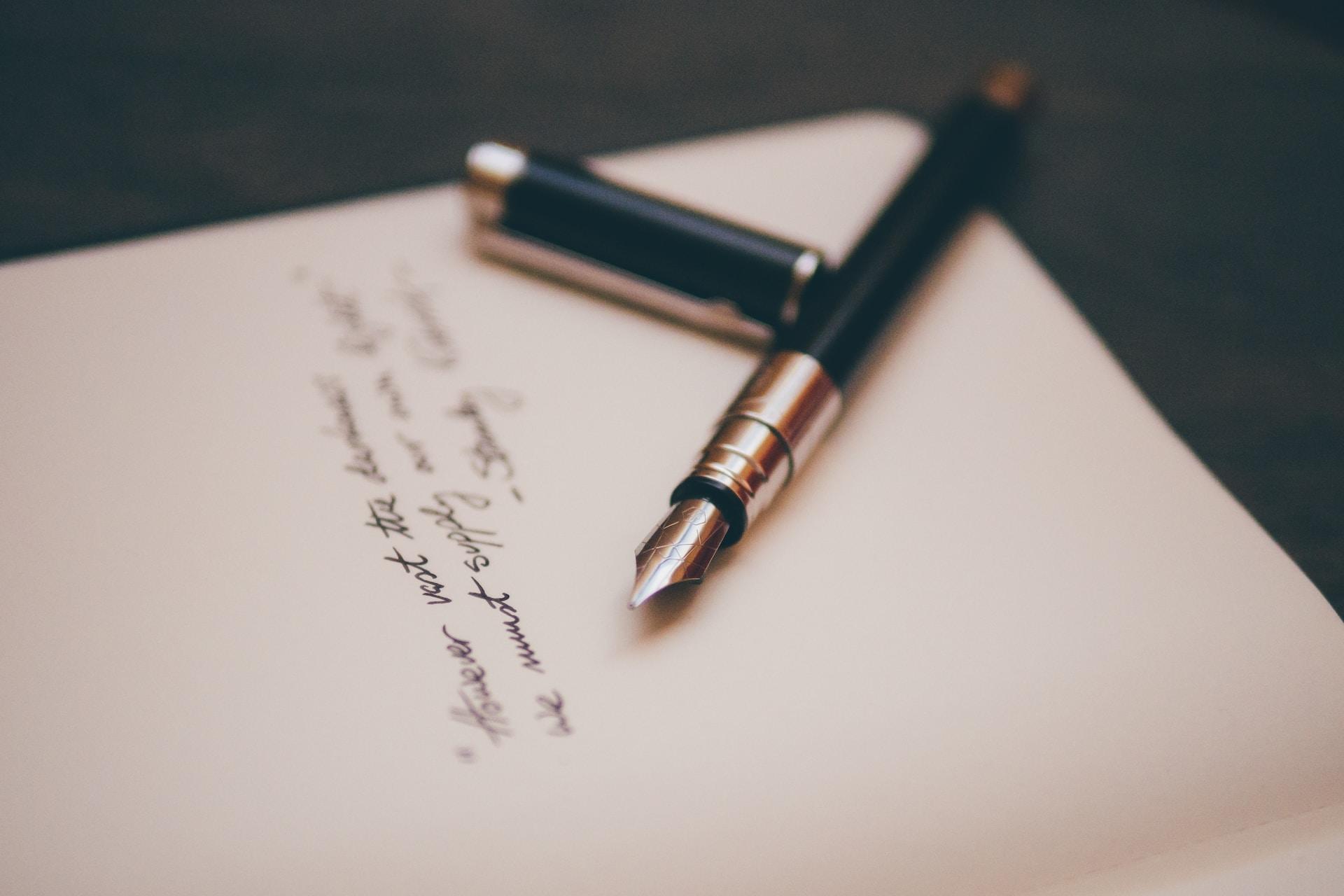Addressing a letter has arguably become a lost art. It is something that people needed to know how to do when applying for a job, communicating with the government, and in most aspects of life. Some people sent many letters a day as part of their jobs.
The email revolution has changed all of that, of course. However, there are still plenty of examples of situations where you may still need to send a letter. What’s more, it is a nice thing to do. Letters aren’t just for appealing parking fines or applying for a job, they can also be a nice way to thank a company for great service, or write to someone asking for help.
First, we dive into the proper methods to address a letter, then we will provide an example of a letter. We’re also exploring some of the ways in which language has changed, and common text abbreviations that are used in modern language.

How to Address a Letter
Addressing a letter typically follows certain conventions of formality and politeness. Some of it may even seem a little archaic to a certain generation, but this is a basic level of skill that you will need when establishing proficiency.
Here's a guide on how to address and sign off a letter:
Recipient's Name
If you know the recipient's name, begin the letter with "Dear" followed by their title and last name. For example, "Dear Mr. Smith" or "Dear Dr. Johnson."
If you don't know the recipient's name, use a generic salutation such as "Dear Sir" or "Dear Madam." It's preferable to address the letter to a specific title if possible.
Formal Titles
When addressing individuals with formal titles (e.g., Professor, Doctor), use the appropriate title followed by the last name. For example, "Dear Professor Brown."
Use appropriate titles, such as Mr., Mrs., Ms., or Dr., based on the recipient's gender and title. Again, these are to be used if you know them. Often, a little bit of research can provide this information, and it also lets you make the letter a bit more personal.
People can choose their own title (Mr, Mrs, Miss or Ms) in the majority of instances. For example, the passport office accept the choice of title, even if the title does not match the gender on their passport, so it is polite to check.
Business Letters
In a business context, it's common to use the recipient's full business address, including their title and company name. For example, "Dear Managing Director, ABC Company."
If the recipient has a special title, use it in the salutation. For example, "Dear Lord Smith" or "Dear Reverend Johnson."
It is important to get things right and not confuse words like "to" and "too" in order to look professional, as well as using the right customs in the letter.
Sign-Off Rules

One of the most important rules to follow is whether to use ‘sincerely’ or ‘faithfully’ in your letter. 'Yours sincerely' is designed for when you know the name and title of the person you are writing to, while 'Yours faithfully' is the one to use when you do not know the person's name.
For instance, if your letter starts with ‘To whom it may concern’ then the signoff should be ‘Yours faithfully’.
If your letter is to somebody you know, and is addressed with ‘Dear Mr. Smith’ then you may sign it off ‘Yours sincerely’.
Personal and Informal Sign-Offs
You don’t always have to be a stickler for the sign-off conventions if you know the person. For example, in the days when letters were the main way for soldiers to write back to their families, they weren’t signing them off ‘Yours sincerely’ every time!
For more informal or personal letters, use sign-offs like "Best regards," "Kind regards," or "Best wishes."
In professional or business letters, consider sign-offs such as "Kind regards," "Best regards," or "Sincerely."
For personal letters to friends or family, you might use more casual sign-offs like "Love," "Best," or simply your first name. In these letters, people are more likely to use slang and other informal language choices, too.
Formal Letter Example
[Your Name]
[Your Address]
[City, Postcode]
[Email Address]
[Date]
[Recipient's Name]
[Recipient's Job Title]
[Company Name]
[Company Address]
[City, Postcode]
Dear Mr. Smith,
I trust this letter finds you well. My name is [X], and I am writing to express my interest in the [Job Title] position advertised on your company's website.
In my current role as [Current Job Title] at [Company], I have gained valuable experience in [mention relevant skills and experiences]. These experiences have equipped me with a strong foundation in [specific industry knowledge], and I am confident in my ability to contribute effectively to your team at [Company Name].
I am particularly drawn to [Company Name] due to its reputation for [mention specific aspects of the company or industry that appeal to you]. I am impressed by the company's commitment to [mention any notable achievements or values]. I am eager to bring my skills and enthusiasm to your esteemed organisation.
Enclosed with this letter is my CV, which provides additional details about my professional background. I would welcome the opportunity to discuss in further detail how my skills align with the needs of [Company Name]. I am available for an interview at your earliest convenience.
Thank you for considering my application. I look forward to the possibility of contributing to the success of [Company Name]. Please find my contact information below, and I am available at [Your Phone Number] or [Your Email Address].
Yours sincerely,
[Your Full Name]
[Your Job Title, if applicable]
Remember that if you are writing to somebody whose title you do not know, you should sign the letter off with ‘Yours faithfully’ in place of ‘Yours Sincerely’.
Text Abbreviations
We also live in an age when things have changed drastically in the ways we communicate. Abbreviations have become more common to suit the fast pace of life and digital communication methods we have.
Many words have become commonly abbreviated, such as:
| Abbreviation | Word (meaning) |
| Sus | Suspicious |
| B4 | Before |
| Gr8 | Great |
| M8 | Mate |
| SRSLY | Seriously |
| Luv | Love |
| Thx | Thank you/Thanks |
| Kl | Cool |
| K | Okay |
Seeing some of these may invoke images of early 00s text speak, when people had an eye on the message length as they may have got charged for longer messages.
As well as abbreviating words, people often use acronyms to abbreviate whole phrases. Some examples, along with their meanings, are below:
- OMG: Meaning: Oh my goodness/oh my gosh. Example: "OMG, I can't believe you won the prize! That's amazing!"
- LOL: Meaning: Laugh out loud. Example: "Your joke was so funny LOL."
- BRB: Meaning: Be right back. Example: "I need to grab a snack; BRB!"
- IDK or IDEK: Meaning: I don't (even) know. Example: "IDEK what time the lecture starts; let me check."
- GTG: Meaning: Got to go. Example: "I have a meeting in 10 minutes, GTG!"
- ICYMI: Meaning: In case you missed it. Example: "ICYMI, there's a new episode of your favourite podcast out."
- BTW: Meaning: By the way. Example: "BTW, did you hear about the new shows that got announced?"
- TTYL: Meaning: Talk to you later. Example: "I have to finish this report now; TTYL!"
- YOLO: Meaning: You only live once. Example: "Let's go skydiving—YOLO!"
- NSFW: Meaning: Not safe for work. Example: "I found a funny video, but it's NSFW, so watch it in private."
Lots of these have made their way into language from text speak, and there are some who turn their nose up at that! However, when you think about it, there are a lot of abbreviations we use in everyday life that have existed long before social media and online chat.
- DIY meaning do it yourself but referring to a whole hobby, too: “Barry loves DIY!”
- ASAP meaning as soon as possible
- AM and PM are abbreviations. AM stands for the Latin ante meridiem, translating to "before midday". PM stands for post meridiem or "after midday" referring to any time after noon.
- DOB meaning date of birth. Because date of birth is such a chore to type, right?
- N/A means not applicable, referring to if something doesn’t apply to you.
- ETA means estimated time of arrival, and has been made common in air travel as well as other forms of communication.
We even use a French abbreviation commonly in the English language; RSVP. RSVP stands for “Répondez s’il vous plait”. This is common on invitations to weddings and get togethers. You can see how abbreviations and acronyms are just a part of the English language, and how they become used in everyday life.
Addressing Letters (and Understanding How Language Has Changed)
The English language is certainly a fascinating topic. Writing a letter, especially by hand, feels like quite the old-fashioned thing to do, but it still makes sense in some scenarios, and it is an art it would be a shame to lose, even in an age where language is changing. There are a number of different abbreviations that we use daily, sometimes without even thinking about it. We’ve explored some of these text abbreviations in this guide, and explored what they mean, in a way anyone can understand.
Summarise with AI:















